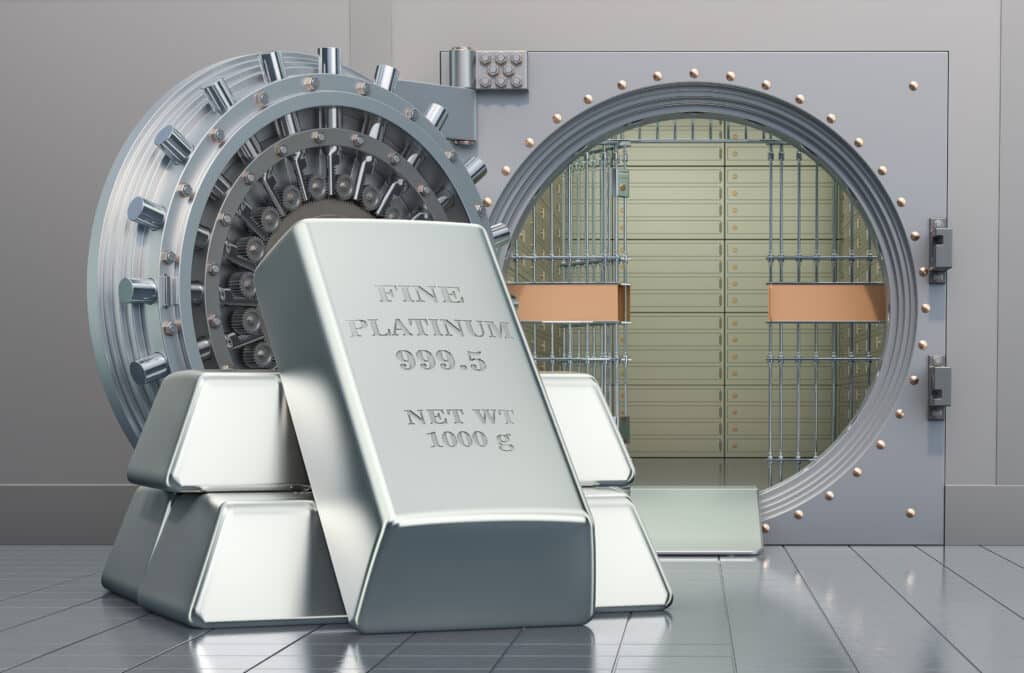Gold prices’ slide in response to Tuesday’s election results could be a head fake. From inflation to geopolitical uncertainty, the prospect of a second Donald Trump presidency only makes the investment case look stronger.
The price of gold fell nearly 3% following the vote, after rallying this year. It hit a record high as recently as Oct. 30.
One reason for the reversal is that Trump’s clear-cut win removed uncertainty hanging over U.S. markets and politics, weakening the case for haven assets. A bigger factor, however, was a spike in interest rates that came as markets digested the prospect a second Trump term could lead to higher inflation. Many investors buy gold as an alternative to bonds, and when bond yields rise, gold becomes comparatively less attractive.
By Friday, yields on 10-year Treasury debt had eased, and gold regained some of its losses. Front-month gold futures closed at $2,688 an ounce, according to Dow Jones Markets Data. That was up from the low of $2,668 following the election result, but still below the recent record of $2,788.
Most of the arguments gold bulls make—and have been making throughout 2024—look stronger after Trump’s win.
“We are still relatively constructive on gold,” says Taylor Krystkowiak, investment strategist at Themes ETFs. “Why does gold go up? It’s geopolitical uncertainty, it’s deficit spending, and it’s inflation. Right now all those stars are aligned.”
The inflation argument might seem counterintuitive, given that over the past few days, gold has appeared to sell off due to worry over inflation sending bond yields higher. But inflation’s relationship to gold is complicated and can push both ways.
In fact, most investors regard inflation worries as a classic reason to buy, not sell gold. It is no accident that two of gold’s biggest rallies on record—the current one and a surge in the late 1970s—have come when inflation was a critical issue on investors’ minds.
Why is Wall Street so worried Trump’s win will spur more inflation? There are several reasons.
During the campaign, Trump promised a 10% tariff on all imports and a 60% levy on those coming from China. While that proposal may well be watered down, whatever import duties Trump does put in place would almost certainly push up prices for U.S. consumers. Trump’s plans to deport undocumented workers would push up labor costs for many U.S. companies.
His tax plans also pose risks. Trump pledged to extend his signature 2017 Tax Cuts and Jobs Act to spur growth. But the law’s tax cuts aren’t offset by tax increases elsewhere, so they would add more than $4 trillion to the national debt, according to one independent analysis—another potential inflation driver.
In addition to higher prices and budget deficits, the Trump political brand, built on unpredictability and the promise of fundamental change to U.S. institutions, could add political and market anxiety. That might benefit gold, often seen as the best place to take shelter when markets get rough.
Trump’s potential to inject uncertainty into markets was on display Wednesday when Fed Chairman Jerome Powell was forced to respond to Trump criticism by reminding reporters Trump didn’t have the power to fire him. Trump has called for curtailing the Federal Reserve’s political independence. Any battle over the powers of the U.S. central bank would be bound to roil markets.
Trump’s helter-skelter image is one he has deliberately fostered. When asked last month if he would use force to deter China’s leader Xi Jinping from moving against Taiwan, Trump responded: “I wouldn’t have to, because he respects me and he knows I’m f— crazy.”
In other words, like him or not, Trump’s win will keep markets on edge. “It’s a little bit of a chaos grenade,” says Krystkowiak.


